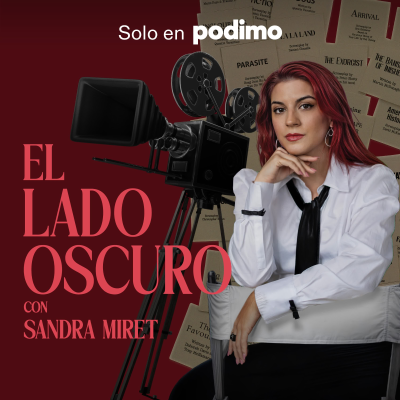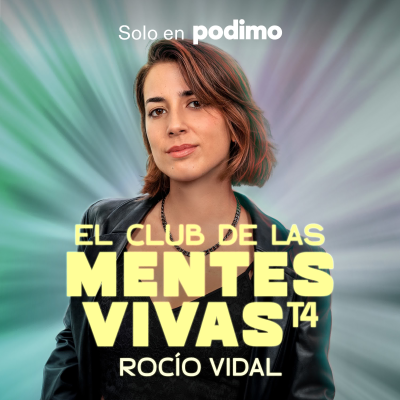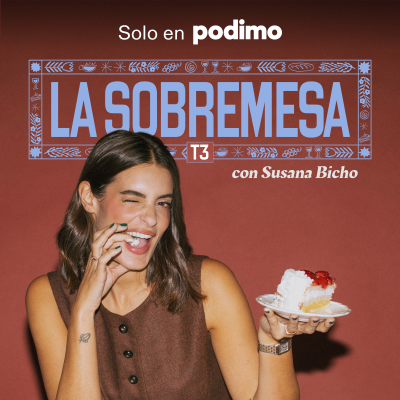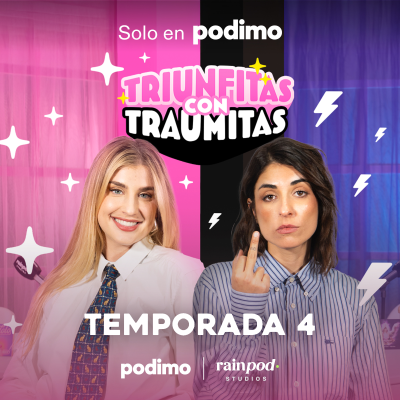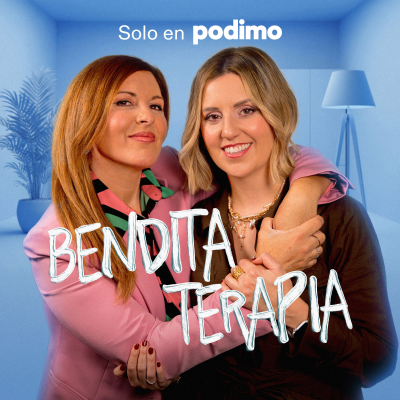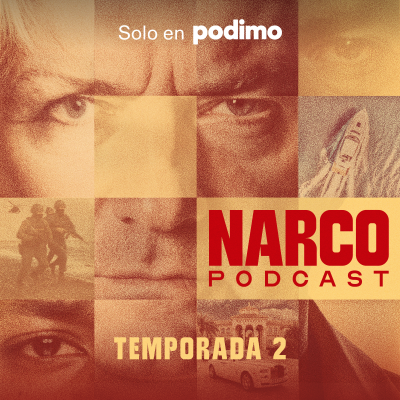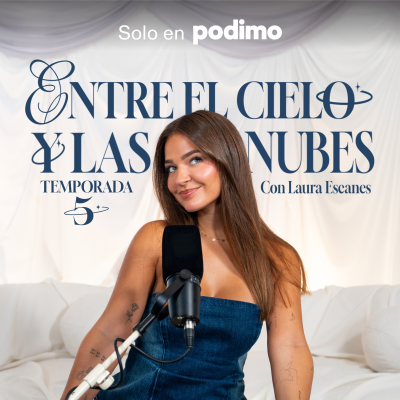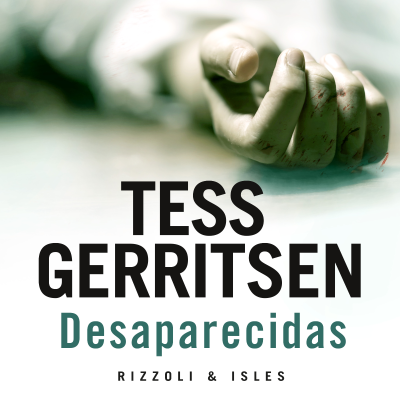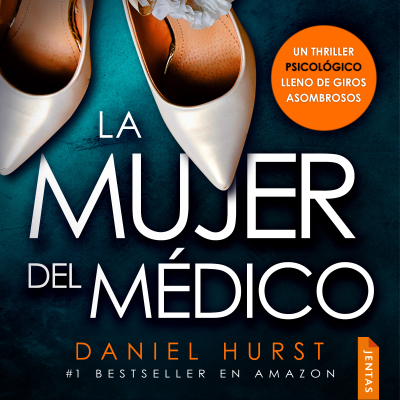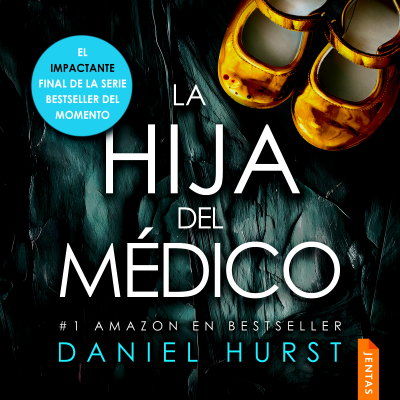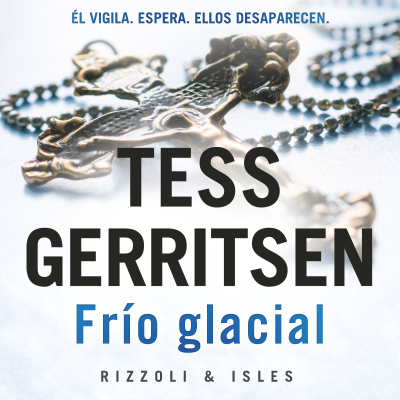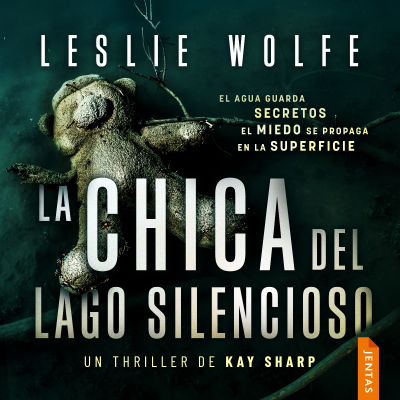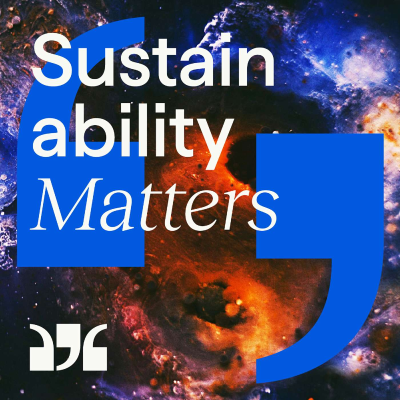
Sustainability Matters
inglés
Cultura y ocio
Oferta limitada
2 meses por 1 €
Después 4,99 € / mesCancela cuando quieras.
- 20 horas de audiolibros / mes
- Podcasts solo en Podimo
- Podcast gratuitos
Acerca de Sustainability Matters
Sustainability Matters (formerly Humanities Matter)—produced by De Gruyter Brill—takes a deep dive into sustainability in scholarly communications and beyond. The podcast explores topics such as promoting diverse voices and marginalized perspectives in academia, the global accessibility of research, research ethics, combatting misinformation and more. Sustainability Matters features experts, advocates, practitioners, and De Gruyter Brill authors whose work on ethical and sustainable practices breaks boundaries, builds new bonds, and shapes a better future. Join us as we explore how we can shape a more equitable and accessible future for knowledge sharing—because sustainability truly matters, in scholarly publishing, and beyond.
Todos los episodios
114 episodiosThe Power of Unions: Rise, Fall, Return?
On this episode of Sustainability Matters, we ask: why do unions rise, why do they fall, and what does it take for them to rise again? How do leadership, strategy, and internal democracy shape their trajectory? And what can the turbulent history of a major New York transit union teach us about the labour movement today? All this and more with Dr. Marc Kagan, author of Take Back the Power: The Fall and Rise and Fall of NYC’s Transport Workers Union Local 100, 1975–2009 [https://brill.com/display/title/73488?srsltid=AfmBOoriqHIhlV1DkttG-ew6LDEeoha3ur3Ny4O9A0p6Jzn9dPN7QJDQ], which is Volume 7 in the series Studies in Political Economy of Global Labor and Work [https://brill.com/display/serial/PELW], published by De Gruyter Brill. Host: Ramzi Nasir [https://x.com/RamziNasir] Guest: Dr. Marc Kagan [https://marckagan.substack.com/ ]
Religion in a Culture of Digitality: Belief, Power, and Participation
On this episode of Sustainability Matters, we ask: How is digital technology transforming religious belief and practice today? How does digital culture reshape religious authority, education, and governance? And how do emerging technologies such as artificial intelligence complicate questions of belief, legitimacy, and responsibility within religious communities? All this and more with Dr. Thomas Schlag and Katharina Yadav, editors of Religious Communication, Interaction and Transformation in a Culture of Digitality, [https://www.degruyterbrill.com/document/doi/10.1515/9783111721729/html] published by De Gruyter Brill. Host: Ramzi Nasir [https://x.com/RamziNasir] Guests: Dr. Thomas Schlag [https://www.theologie.uzh.ch/en/faecher/praktisch/team/schlag.html] and Katharina Yadav [https://www.theologie.uzh.ch/de/faecher/praktisch/pt_religionspaedagogik/personen/doktorierende/katharina-yadav.html]
Do Solutions to Current Ecological Challenges Lie in Decolonizing the Environment?
What are the limits of the utilitarian approach to studying the environment? How do we go beyond Western philosophies in our thinking around the environment? Can Western and Non-Western approaches work together? And why is it imperative that we expand our political imagination? In this episode of Sustainability Matters, Dr. Aleksandra Ross and Dr. Krzysztof Skonieczny talk about the importance of looking at ecological challenges from pluralistic, culturally diverse perspectives and discuss ways in which non-Western styles of thought help us not only understand the problem better, but also find solutions. This episode is based on their book Non-Western Approaches in Environmental Humanities [https://www.vandenhoeck-ruprecht-verlage.com/themen-entdecken/literatur-sprach-und-kulturwissenschaften/interdisziplinaere-geisteswissenschaft/59860/non-western-approaches-in-environmental-humanities], published by De Gruyter Brill, of which they’re co-editors alongside Dr. Gabriela Jarzębowska. Host: Ramzi Nasir [https://x.com/RamziNasir] Guests: Dr. Aleksandra Ross [https://www.linkedin.com/in/aleksandra-ross-37b961242/] and Dr. Krzysztof Skonieczny [https://uw.academia.edu/KrzysztofSkonieczny]
The Heritage of Psychiatry: Whose Voices Are Heard?
On this episode of Sustainability Matters, we ask: What does it mean to narrate the heritage of psychiatry? Why is the history of mental health research so relevant today? How can we celebrate diverse experiences of "madness" without romanticising potentially harmful behaviours? And what role do contemporary systems play in the future of mental health heritage? All this and more with Dr. Christoph Singer, co-editor of Narrating the Heritage of Psychiatry [https://brill.com/display/title/63041], which is Volume 1 in the series “Narratives and Mental Health [https://brill.com/display/serial/NMH]”, published by De Gruyter Brill. Host: Ramzi Nasir [https://x.com/RamziNasir] Guest: Dr. Christoph Singer [https://www.uibk.ac.at/en/anglistik/department/staff/singer/]
Does Promoting Research Actually Pay Off?
This month on Sustainability Matters, we discuss whether external research promotion has any tangible effects. Can external media attention translate into academic citations? Does choosing the “right” journal matter? And do we risk perverse outcomes from over-incentivising citations? All this and more with Dr. Steffen Lemke and Dr. Isabella Peters, authors of “Path model of the interplay between the promotion and the received attention of research articles” [https://www.degruyterbrill.com/document/doi/10.1515/9783110776546-005/html] along with Dr. Athanasios Mazarakis. This is a chapter in the book The Science-Media Interface [https://www.degruyterbrill.com/document/doi/10.1515/9783110776546/html], published by De Gruyter Brill. Guests: Dr. Steffen Lemke [https://blog.stlemke.de/] and Dr. Isabella Peters [https://www.zbw.eu/en/about-us/staff-profiles/profile-professor-isabella-peters] Host: Ramzi Nasir [https://x.com/ramzinasir]
Elige tu suscripción
Oferta limitada
Premium
20 horas de audiolibros
Podcasts solo en Podimo
Podcast gratuitos
Cancela cuando quieras
2 meses por 1 €
Después 4,99 € / mes
Premium Plus
100 horas de audiolibros
Podcasts solo en Podimo
Podcast gratuitos
Cancela cuando quieras
Disfruta 30 días gratis
Después 9,99 € / mes
2 meses por 1 €. Después 4,99 € / mes. Cancela cuando quieras.

